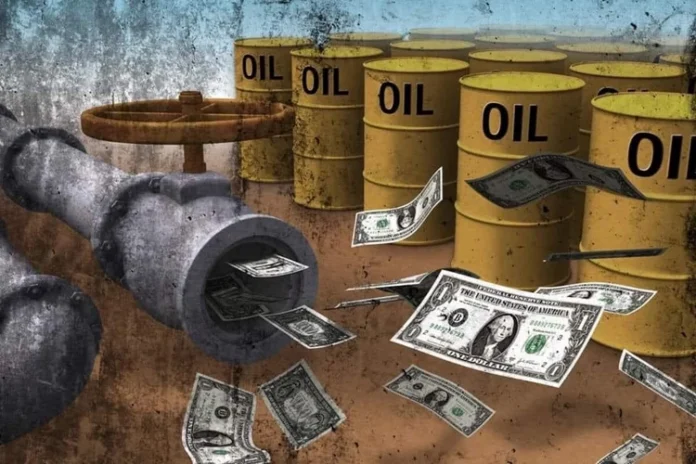The World Bank has stated on Monday that it anticipates the average worldwide oil price to touch $90 per barrel in the fourth quarter of this year. However, it has also warned that the recent intensification of conflict in the Middle East may lead to a significant rise in prices.
The World Bank has recently issued a report on commodity market expectations, which highlights that despite the ongoing war between Israel and Hamas in Gaza, the prices of oil have only risen by 6 percent. On the other hand, the prices of most metals, agricultural commodities, and other basic commodities have barely moved.
The report outlines three risk scenarios based on historical regional conflicts since the 1970s. The severity and consequences of these scenarios increase over time.
First scenario (minor disturbance)
The World Bank predicts that the current situation is comparable to the decrease in oil production that occurred during the Libyan civil war in 2011, which was around 500,000 to 2 million barrels per day. The bank estimates that this would result in an increase in oil prices, pushing them to a range of $93 to $102 per barrel per quarter. Lastly, this is according to the bank.
Second scenario (moderate disturbance)
This scenario is similar to the Iraq War in 2003, and would reduce global oil supplies by 3-5 million barrels per day, leading to oil prices between $109 and $121 per barrel.
Third scenario (major disruption)
Based on information from the World Bank, the effects of this scenario are comparable to those of the Arab oil embargo in 1973. During that time, global oil supplies decreased by 6 million to 8 million barrels per day. As a result, oil prices initially surged to $140 to $157 per barrel, which is an increase of up to 75 percent.
Ayhan Kos, deputy chief economist at the World Bank, has cautioned that the continuous surge in oil prices could result in an increase in food prices, leading to higher inflation. He further added that if there is a sudden spike in oil prices, it could have detrimental effects on developing countries where food prices have already seen a significant rise.





